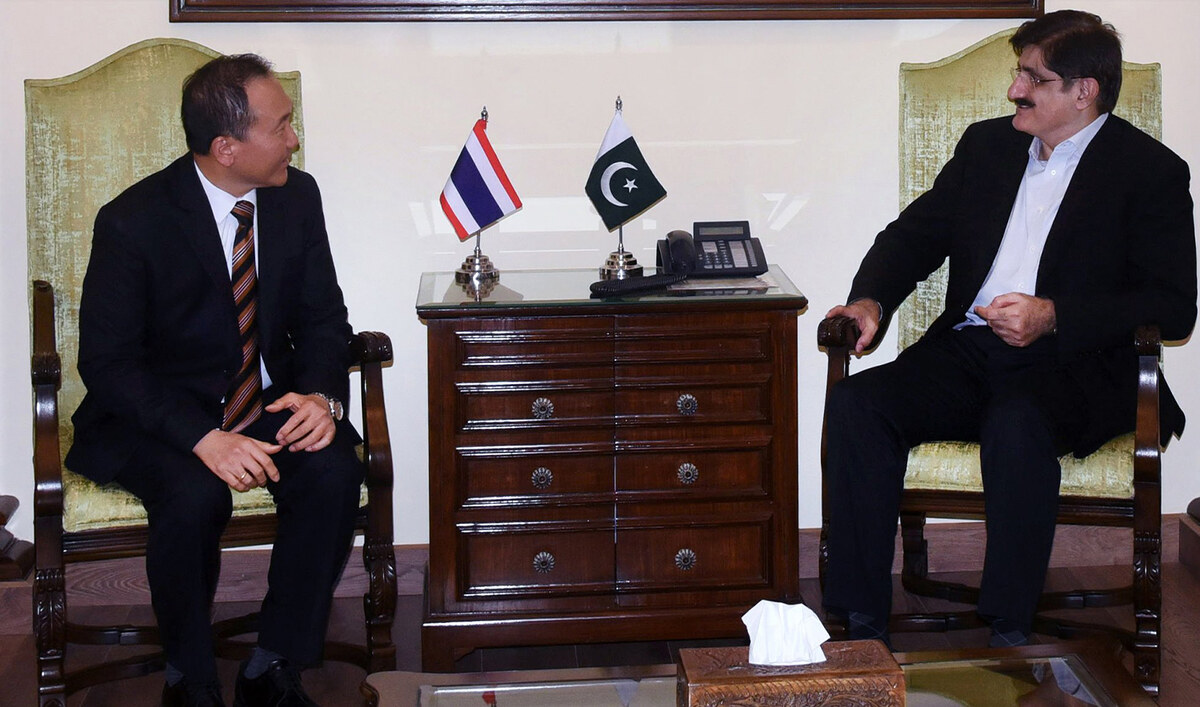KARACHI: Pakistan’s top commerce official said on Tuesday his country had been working toward greater regional connectivity after the first freight train from Islamabad to Istanbul via Tehran departed after a gap of nine years to increase trade among the three countries involved.
The trial run of the Islamabad-Tehran-Istanbul (ITI) train was launched in August 2009 as a project under the Economic Cooperation Organization (ECO), a 10-nation Asian trade bloc.
After the inauguration of the project, about eight trains were made operational, though the service was closed in 2012 due to security reasons.
“Today is a day which will be long remembered for regional trade and connectivity for which the commerce ministry has been continuously working,” Abdul Razak Dawood, prime minister’s adviser on investment and commerce, said at the inauguration ceremony held at Islamabad’s Margalla Railway Station.
“This is a good start,” Pakistan’s foreign minister Shah Mahmood Qureshi said while speaking at the ceremony, adding: “We believe in and promote economic diplomacy that is the need of the hour.”
Ambassadors of Turkey, Iran, Kazakhstan and Uzbekistan were also present at the ceremony.

Advisor to Prime Minister for Commerce and Investment Abdul Razak Dawood (2L), Foreign Minister of Pakistan Shah Mehmood Qureshi (3L) and Minister for Railways Azam Khan Swati (3R) pose for a photograph at the inauguration ceremony of the Islamabad-Tehran-Istanbul freight train service in Islamabad, Pakistan, on December 21, 2021. (Photo courtesy: MOFA)
Dawood said regional connectivity was one of the most important pillars of the government’s strategic trade policy framework.
“It is heartening to witness the resumption of operations of the Istanbul-Tehran-Islamabad freight train after nine years,” he added.
The train covers more than 6,500 kilometers since it travels 2,570 kilometers in Iran, 2,000 kilometers in Turkey and about 1,900 kilometers in Pakistan.
“The train will complete one side of the trip in 12 days and will go a long way in facilitating the movement of goods between Pakistan, Iran and Turkey,” Dawood noted. “I call our exporters to take benefit of this alternative route and mode of transportation.”
Pakistan’s railways minister Azam Khan Swati highlighted the importance of the ITI freight train, saying the service would open the doors for greater business and connectivity in the region.
He added the passenger service would also start soon.

Pakistan's Minister for Railways Azam Khan Swati (center) inaugurates Islamabad-Tehran-Istanbul freight train service in Islamabad, Pakistan, on December 21, 2021. (Photo courtesy: The Ministry of Commerce, Pakistan)
According to railway officials, the first train is carrying cargo only for Turkey which will be transshipped at Zahedan, Iran, due to technical reasons.
“The train is taking pink salt and dates apart from other cargo for Turkey,” Imran Hayat Khan, director general operations of the Pakistan Railways, told Arab News.
“It will take around eight days to reach Taftan,” Khan said, adding the cargo would be converted into a Turkish train due to the different gauge of tracks.
The freight train has the capacity to carry 26 containers of 20 feet and 13 containers of 40 feet, he informed.
Currently, two freight forwarders, Maxtel Logistics and Haroon Brothers, would help carry out the trade.
In the first phase, wagoned trains would be used to conduct the trade followed by the containerized trains in second phase, according to the Pakistan Railways.
Pakistani officials said the colonial era railway track on Pakistan’s side was in working condition. The train from Pakistan would enter Iran from Zahedan.


















